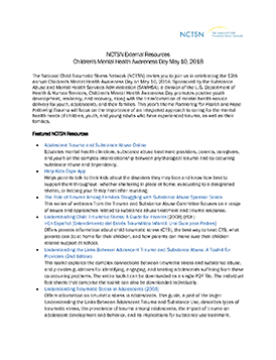
Children's Mental Health Awareness External Resources
Provides external resources related to Children's Mental Health Awareness.
The following resources on child trauma were developed by the NCTSN. To find a specific topic or resource, enter keywords in the search box, or filter by resource type, trauma type, language, or audience.

Provides external resources related to Children's Mental Health Awareness.

Is a table of standardized measures that are appropriate for children and families dealing with complex trauma.
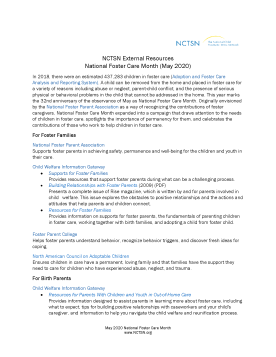
Provides external resources related to National Foster Care Month.
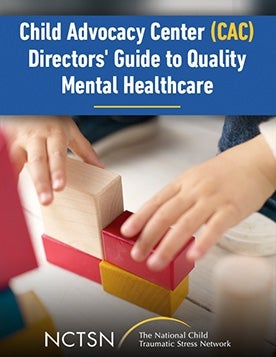
Helps Children’s Advocacy Center (CAC) directors deliver the highest quality care to children and families.
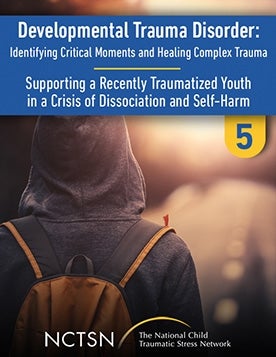
Presents the first therapy session of Samantha, a 15-year-old African American girl who lives in public housing in an urban area rife with violence and drug use.
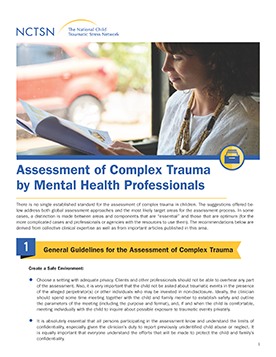
Offers information on the assessment of complex trauma in children.
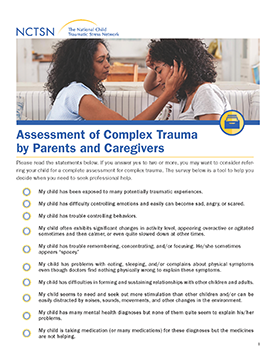
Offers parents and caregivers a brief checklist to use to determine if a complete assessment for complex trauma should be scheduled. This fact sheet will help parents and caregivers determine when to seek professional help.
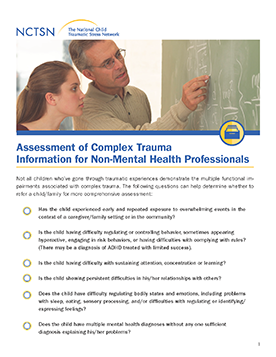
Provides information for non-mental health professionals regarding the assessment of complex trauma.

Is a list of terms found within the Measures Review Database (MRD). This fact sheet defines various terms from the MRD to help users better understand the measures reviews.
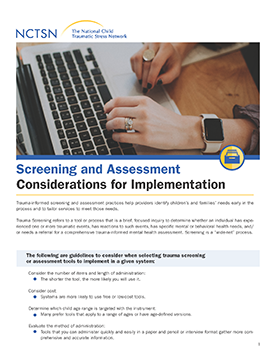
Gives providers considerations for implementing screening and assessment into their work. This fact sheet offers guidelines to consider when selecting trauma screening or assessment tools to implement in a given system.
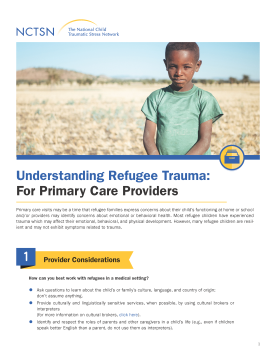
Outlines different considerations that primary care providers need to take into account when working with refugee youth and their families.
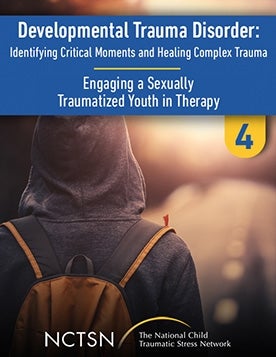
Depicts a youth who is referred to therapy after several weeks of unexplained sickness. This webinar shows a youth who was already seeing a therapist to work on recent difficulties in school and conflicts with his parents.